This policy is widely supported by the people, considering it a reasonable decision in the current situation. Looking deeper, this is not just an educational policy, it is the beginning of a long-term strategy, making intelligence the center of national development.
For many years, general education, especially primary and secondary education, has been the front line of suffering due to heavy curriculum, poor facilities, short timetables and students only attending one session per day in most rural areas. In the afternoons when there are no classes, children struggle between the burden of work, phone screens or lack of direction. Many poor families have to choose to “sacrifice quality” because they cannot afford tuition for intensive classes.
In that context, the State’s establishment of the right to study 2 sessions/day as a universal standard without tuition fees is an institutional turning point. For the first time, students are not only allowed to “go to school”, but also to learn enough from knowledge to skills, from culture to art. Exemption from tuition fees is not only a social security policy, it is a commitment to school justice, a guarantee of the right to grow up in equal conditions. And more importantly, it is an investment for the future that cannot be delayed any longer.
A modern education is not only measured by grades or graduation rates, but also by the quality of its citizens. When students have two sessions a day, subjects that are often considered “minor” such as music, art, physical education, and life skills will have a worthy place.
That is the way to nurture the ability to perceive, the sense of responsibility and the comprehensive health of the future generation, things that are not on the exam, but are essential in life. Children do not only need to study well, but also need to live healthily, confidently and humanely. Teaching 2 sessions/day is teaching a generation to live beautifully, not just to live enough.
In addition to the policy of universalizing two sessions per day, the General Secretary also emphasized the educational policy for border areas. The requirement to build boarding and semi-boarding schools for students in border communes is not simply a solution to geographical difficulties, it is a strategic choice, because the border areas need not only a security fence but also a knowledge "fence".
A child of an ethnic minority or Kinh living in a border area, when studying in a school with clean toilets, nutritious lunch, dedicated teachers and a class teaching the neighboring language, is the first cell of peaceful development and cooperation in border areas. Teaching the neighboring language to students in border areas is not “teaching for fun”. It is preparing a generation that both preserves national identity and becomes a bridge of people-to-people diplomacy, connecting with the region with intelligence, not fences.
The General Secretary also pointed out that the implementation must follow a roadmap, avoiding formalities, starting from the land border areas from the 2025-2026 school year. Localities with conditions should implement immediately, without waiting for instructions. And in particular, it is necessary to strictly prohibit cutting down on student food rations, a small detail but containing a big message about the ethics of policy implementation.
No country can develop by saving on education. There can be no creative society if children are not educated enough in both knowledge and personality. Free tuition, teaching 2 sessions/day, investing in schools in border areas are a package of synchronous policy thinking, putting people at the center of national development.
Source: https://www.sggp.org.vn/mien-hoc-phi-tu-tam-nhin-tuong-lai-quoc-gia-post794384.html


![[Photo] Prime Minister Pham Minh Chinh works with the Standing Committee of Thai Binh Provincial Party Committee](https://vphoto.vietnam.vn/thumb/1200x675/vietnam/resource/IMAGE/2025/5/12/f514ab990c544e05a446f77bba59c7d1)




![[Photo] Prime Minister Pham Minh Chinh receives Swedish Minister of International Development Cooperation and Foreign Trade](https://vphoto.vietnam.vn/thumb/1200x675/vietnam/resource/IMAGE/2025/5/12/ae50d0bb57584fd1bbe1cd77d9ad6d97)

![[Infographic] New points in the 2025 high school graduation exam](https://vphoto.vietnam.vn/thumb/402x226/vietnam/resource/IMAGE/2025/5/13/f0cfdc8a459140189332d252cca0af7d)
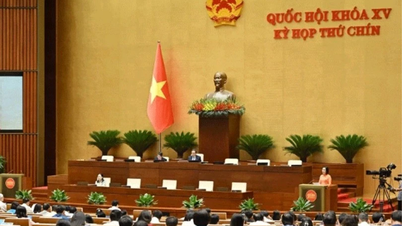











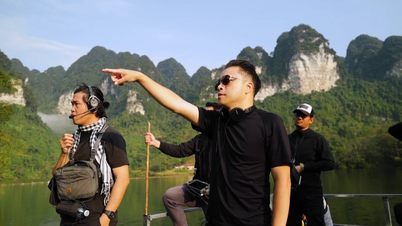




































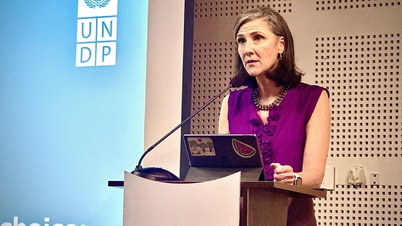

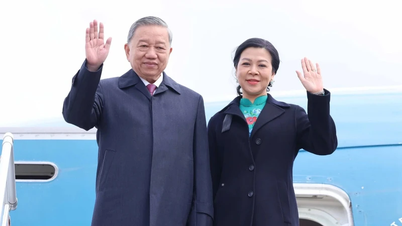
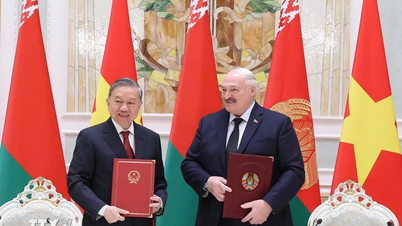












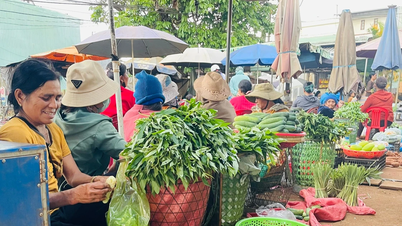
















Comment (0)